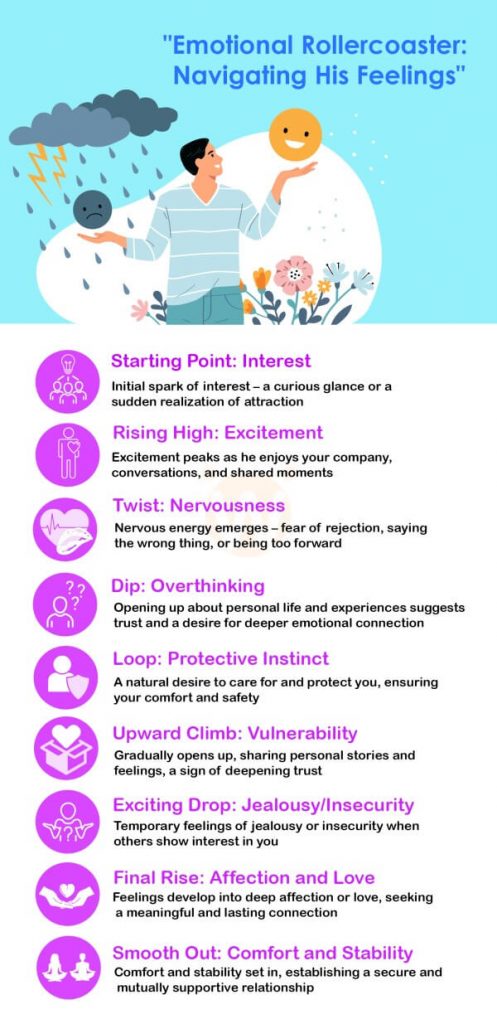
Defining Genuine Intentions in Dating
Understanding the Concept of Genuine Intentions
Genuine intentions in dating refer to the authentic desires and motivations individuals have when seeking a relationship. They indicate a commitment to building a meaningful connection rather than engaging in superficial encounters. Understanding this concept is vital for anyone navigating the dating landscape, as it lays the foundation for healthy relationships.
Importance of Identifying Them Early
Identifying genuine intentions early in the dating process can save time and emotional energy. It helps individuals to:
- Avoid Heartache: Recognizing discrepancies in intentions minimizes the risk of getting hurt.
- Set Clear Expectations: Knowing what both partners want allows for honest discussions about the future.
- Focus on Compatibility: Identifying shared values can lead to deeper connections.
For instance, Sarah quickly learned that her date’s focus on just casual fun clashed with her search for something serious. This early detection allowed her to redirect her efforts toward more promising relationships.

Common Signs of Genuine Intentions
Consistency in Words and Actions
One of the strongest indicators of genuine intentions is the consistency between what someone says and what they actually do. If their words align with their actions, it reflects a sincere commitment. For example, when David consistently checks in with Emma and follows through on plans, it indicates he genuinely cares and values their time together.
Respectful and Honest Communication
Respectful and honest communication is crucial in fostering genuine intentions. Partners who express feelings openly and listen actively create a safe space for dialogue. Consider how Jessica feels valued when Tom openly discusses his goals and aspirations, showcasing a willingness to share and connect on a deeper level.
Prioritizing Emotional Connection over Physicality
Genuine intentions often manifest in prioritizing emotional connections over merely physical attraction. If someone invests time in understanding their partner’s dreams, fears, and values, it’s a clear sign they’re interested in something meaningful. For instance, instead of rushing into physical intimacy, Mark takes the time to engage in heartfelt conversations with Lily, building a strong emotional foundation first.

Red Flags to Watch Out For
Inconsistencies in Behavior
While genuine intentions shine through consistent words and actions, inconsistencies in behavior can signal trouble. For instance, if Alex is affectionate one moment and distant the next, it may indicate uncertainty about his feelings. This unpredictability can lead to confusion and frustration.
Avoidance of Personal Questions
Another red flag is when someone consistently avoids personal questions. If Julia tries to engage Sam about his family or past but he deflects or changes the subject, it raises concerns about his openness. Genuine partners should feel comfortable sharing their lives and experiences.
Lack of Commitment or Future Planning
Lastly, a marked lack of commitment or future planning can be a glaring indicator of disinterest. When Chloe brings up plans for the future and notices Noah hesitates or completely avoids the topic, it signals he may not be in it for the long haul. Establishing shared goals is essential for healthy relationship growth.

Strategies for Spotting Genuine Intentions
Trusting Your Instincts and Observations
When it comes to spotting genuine intentions, trusting your instincts is paramount. Often, gut feelings can provide insightful clues about someone’s true motivations. For instance, when Mia met Jake, a nagging feeling lingered during their conversations, prompting her to pay closer attention to his behavior.
Setting Boundaries and Expectations
Setting boundaries and managing expectations can also help clarify intentions. By expressing what you want and need in a relationship, you create a framework for open communication. For example, when Lisa discussed her desire for exclusivity with Tom early on, it encouraged him to share his intentions honestly, ensuring that both were on the same page.
Evaluating Long-Term Compatibility
Finally, evaluating long-term compatibility is essential in discerning genuine intentions. Reflecting on shared values and life goals can reveal whether you and your partner envision a future together. When Sam and Jamie discussed their career aspirations and family plans, it became clear that they were aligned, strengthening their connection and reducing doubt about each other’s intentions.
:max_bytes(150000):strip_icc()/Intentional-Dating-Getty-Images-Main-9f5773f60aeb4f9590631dd1e6784756.jpg)
Communication Tips for Clarity
Asking Direct Questions
Effective communication is crucial for clarity in dating. One of the best strategies is to ask direct questions. This approach helps eliminate assumptions. For instance, when Emily asked Mark about his relationship goals, it not only prompted an honest conversation but also prevented misunderstandings down the line.
Expressing Your Own Intentions Clearly
Equally important is the ability to express your own intentions clearly. Sharing your desires and expectations upfront can pave the way for honest dialogue. When Jake told Mia he was looking for a serious relationship, it encouraged her to reciprocate, fostering openness and trust.
Listening to Responses and Assessing Reactions
Lastly, listening actively to responses and assessing reactions can provide valuable insights. Pay attention to how your partner responds to your questions. If Sarah notices discomfort or evasiveness in Tom’s answers, it signals a potential red flag worth exploring further. This attentive approach can enhance mutual understanding and strengthen the relationship.

Navigating Challenges and Tough Conversations
Addressing Mixed Signals
Navigating the dating landscape can be tricky, especially when faced with mixed signals. If you find yourself puzzled by your partner’s behavior, addressing these inconsistencies directly can clear the air. For example, when Laura felt confused by Jake’s sudden distance, she chose to have an open conversation about her feelings, bringing both clarity and understanding to their relationship.
Handling Rejection or Disappointment
Handling rejection or disappointment gracefully is another essential skill in dating. It’s natural to feel upset when things don’t work out, but it’s crucial to remember that rejection isn’t a reflection of your worth. Finding ways to cope—like talking to friends or engaging in self-care—can help you move forward positively. Sarah, for instance, took time to reflect on her experience after a breakup, allowing her to grow stronger.
Establishing Open and Honest Communication Channels
Finally, establishing open and honest communication channels is vital for long-term relationship success. Creating a safe space where both partners feel comfortable discussing emotions fosters trust and connection. When Alex and Jamie committed to regular check-ins about their feelings, they built a stronger partnership, equipped to face challenges together. This approach encourages vulnerability, ensuring both partners can navigate tough conversations with empathy and understanding.

Self-Reflection and Empowerment
Understanding Your Own Needs and Desires
Self-reflection is a powerful tool in navigating the dating world. Understanding your own needs and desires allows for healthier connections. Take a moment to define what you truly want in a relationship. For example, when Sophie realized she craved emotional intimacy over casual flings, it shifted her dating approach, leading her to more fulfilling connections.
Building Self-Confidence and Assertiveness
Building self-confidence and assertiveness is essential for empowering oneself in relationships. Start by recognizing your strengths and accomplishments, which can boost your self-esteem. Practicing assertiveness, such as voicing your opinions or feelings, can help you communicate effectively. When Mark unapologetically expressed his boundaries with partners, he felt a newfound sense of control over his dating life.
Prioritizing Personal Growth and Well-Being
Finally, prioritizing personal growth and well-being lays the groundwork for healthier relationships. Engage in activities that inspire you, whether it’s pursuing a new hobby, exercising, or spending time with supportive friends. For instance, after focusing on her mental health, Emily felt more balanced and ready for love, attracting partners who aligned with her newfound self-awareness. This journey ultimately fosters greater resilience and fulfillment in dating.

Conclusion
Recap of Key Points
Throughout this journey, we’ve explored the importance of recognizing genuine intentions in dating. Key points include:
- Understanding the meaning behind genuine intentions.
- Identifying common signs and red flags.
- Employing effective communication strategies.
- Emphasizing self-reflection and empowerment.
These insights serve as tools for navigating the sometimes tricky waters of romance.
Empowering Women in the Dating Scene
Empowering women in the dating scene is crucial for fostering confidence and authenticity. By recognizing their own needs and setting clear boundaries, women can embrace their choices and cultivate fulfilling relationships. For example, Lisa gained the strength to walk away from a relationship that didn’t serve her, opening the door for healthier connections. Ultimately, approaches rooted in self-awareness, open communication, and personal growth lead to lasting love and empowerment.
